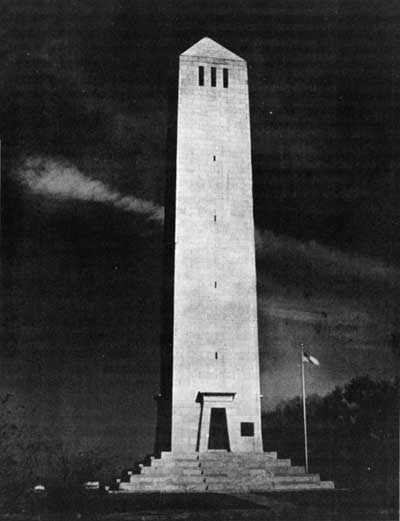|
CHALMETTE National Historical Park |
 |
The Chalmette Monument and the Park
When Jackson came to New Orleans in 1840, he visited the battlefield. On January 13, 1840, a few days after Jackson's visit, the cornerstone was laid for a battlefield monument.
Apparently little was done in the next 15 years. The Jackson Monument Association continued to campaign for the proper commemoration of the heroes who had fought and died here. In 1855 the State of Louisiana bought a small tract of land, which included the American defensive position behind the Rodriguez Canal, and began to build the monument.
The work proceeded slowly, with many interruptions. In 1894, the ground was placed in the custody of the United States Daughters of 1776 and 1812, who cared for it until 1929. That society continued to urge completion of the monument. In 1907, the land was ceded to the United States by the State of Louisiana, and the Federal Government completed the structure the following year.
The monument and grounds were transferred to the United States Department of the Interior in 1933. In 1939 Chalmette National Historical Park was created, including the National Cemetery and the land around the monument. The René Beauregard House and surrounding land were added in 1949.

The Chalmette Monument, begun by the State of
Louisiana in 1855, was completed by the United States Government in
1908.
Photograph by Kay Roush.
FACTS ABOUT THE MONUMENT:
Material: Marble sheathing over brick
Spiral iron staircase winds around brick center support
Height: 100 feet 2-1/2 inches from ground to base of lightning rod
Thickness of walls: 2 feet 5 inches
Widths: 48 feet square at bottom of base
14 feet 4 inches square at base of shaft
14 feet 2 inches square at base of vertex
Vertex: 9 feet high
Damaged by lightning, for third time since completion, in May 1937. Lightning protection system installed soon after.
Plaque installed by United States Daughters of 1812, Chalmette Chapter, October 19, 1947.

|
|
Last Modified: Mon, Dec 2 2002 10:00:00 am PDT |


